Leveraging Big Data for Business Success
In the digital age, business technology has become a key driver of success.
It’s a tool that can propel businesses forward, or leave them trailing behind.
One aspect of business technology that’s making waves is big data. It’s a term that’s been buzzing around the business world for a while now.

But what exactly is big data? And more importantly, how can it be leveraged for business success?
This article aims to answer these questions. It provides an intro to business and technology, focusing on the role of big data.
We’ll guide you through conducting a business technology assessment. This will help you understand your current capabilities and identify areas for improvement.
By the end of this article, you’ll have a clear understanding of how to leverage big data for your business success. Let’s dive in.
Introduction to Business and Technology
Business and technology have become inseparable in the modern world. Technology is now at the heart of almost every business operation.
From communication to marketing, from product development to customer service, technology plays a crucial role. It’s not just about having the latest gadgets or software. It’s about how these tools are used to drive business goals.
Here are some key areas where technology intersects with business:
- Communication: Technology enables instant, global communication. This is vital for internal collaboration and external customer engagement.
- Productivity: Tools like project management software and automated systems boost efficiency.
- Data Management: Businesses generate vast amounts of data. Technology helps manage, analyze, and secure this data.
- Marketing and Sales: Digital marketing strategies and e-commerce platforms are now the norm.
- Customer Service: Technology allows businesses to provide instant, personalized customer support.
Understanding the role of technology in business is the first step. The next is to assess your business’s current technology use. This is where a business technology assessment comes in.
The Importance of Big Data in Business Technology
Big data is a term that refers to extremely large data sets. These data sets are so vast that traditional data processing tools can’t handle them. But why is big data so important in business technology?
Firstly, big data provides businesses with valuable insights. By analyzing big data, businesses can uncover patterns and trends. These insights can inform decision-making and strategy.
Secondly, big data can give businesses a competitive edge. With the right tools and skills, businesses can leverage big data to outperform their competitors. This could be through improved customer service, more effective marketing, or better product development.
Finally, big data is key to digital transformation. As businesses become more digital, they generate more data. This data, if used correctly, can drive innovation and growth.
Conducting a Business Technology Assessment
A business technology assessment is a crucial step for any business. It helps to understand the current state of technology within the organization. This understanding is key to leveraging big data effectively.
The assessment involves evaluating the existing IT infrastructure. This includes hardware, software, and data management systems. It also involves assessing the skills and capabilities of the IT team.
Here are the steps to conduct a business technology assessment:
- Identify the current technology assets.
- Evaluate the performance and efficiency of these assets.
- Assess the skills and capabilities of the IT team.
- Identify gaps and areas for improvement.
By conducting a thorough assessment, businesses can identify opportunities to leverage big data. They can also plan for necessary upgrades or changes to their technology infrastructure.
Steps to Leverage Big Data for Competitive Advantage
Leveraging big data for competitive advantage involves several steps. It starts with understanding the business needs and objectives. This understanding guides the selection and implementation of big data solutions.
The first step is to define the business objectives. These objectives should be specific, measurable, achievable, relevant, and time-bound. They should also align with the overall business strategy.
Next, identify the data sources that will be used. These could be internal sources like CRM systems or external sources like social media. The data should be relevant to the business objectives.
Here are the steps to leverage big data for competitive advantage:
- Define the business objectives.
- Identify the data sources.
- Implement data collection and management systems.
- Analyze the data to gain insights.
- Use these insights to make informed business decisions.
By following these steps, businesses can leverage big data to gain a competitive advantage. They can make data-driven decisions that align with their business objectives. They can also identify trends and patterns that can inform their business strategy.
Case Studies: Success Stories of Big Data in Business
One notable success story is that of Amazon. The e-commerce giant uses big data to personalize customer experiences. It analyzes customer behavior to recommend products. This strategy has significantly boosted their sales.
Another example is Netflix. The streaming service uses big data to understand viewer preferences. It uses this data to recommend shows and even produce content. This data-driven approach has helped Netflix retain and grow its subscriber base.
These case studies highlight the power of big data. When leveraged correctly, it can drive business success. It can help businesses understand their customers better and make informed decisions.
Overcoming Challenges in Big Data Implementation
Implementing big data can pose challenges. These may include data privacy concerns and the need for skilled personnel. However, these challenges can be overcome with the right strategies.
For data privacy, businesses can adopt robust security measures. They can also ensure compliance with data protection regulations. This can help build trust with customers and avoid legal issues.
As for the skills gap, businesses can invest in training. They can also hire data experts. This can ensure that the business can effectively leverage big data for success.
The Future of Business Technology and Big Data
The future of business technology is intertwined with big data. Emerging technologies like AI, machine learning, and quantum computing will further enhance data analysis capabilities.
Businesses that adapt to these changes will gain a competitive edge. They will be able to make more informed decisions and achieve greater success.
Conclusion: Integrating Big Data into Your Business Strategy
In conclusion, big data is a powerful tool for businesses. It provides valuable insights that can drive strategic decisions and foster growth.
However, leveraging big data requires a well-planned strategy. This includes conducting a thorough business technology assessment and addressing any gaps in your current capabilities.
By integrating big data into your business strategy, you can unlock its full potential. This will enable you to stay competitive in the ever-evolving business technology landscape.
Building better solutions for better business®




